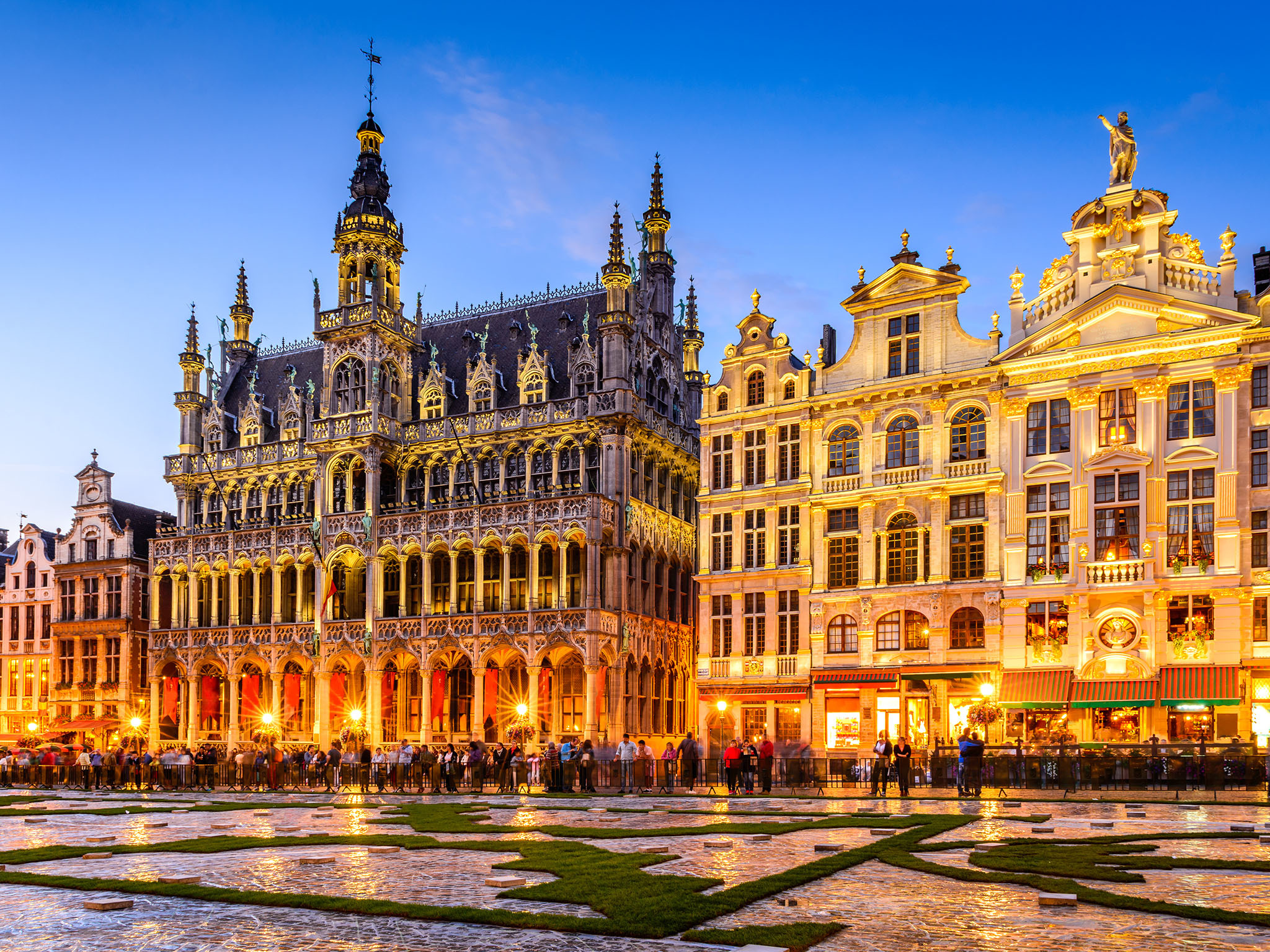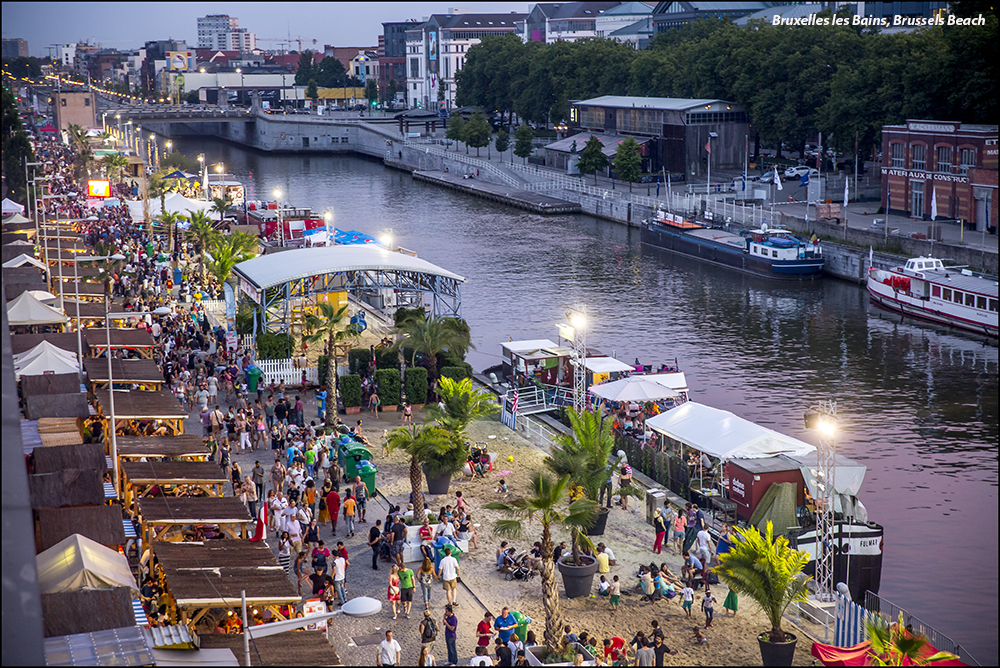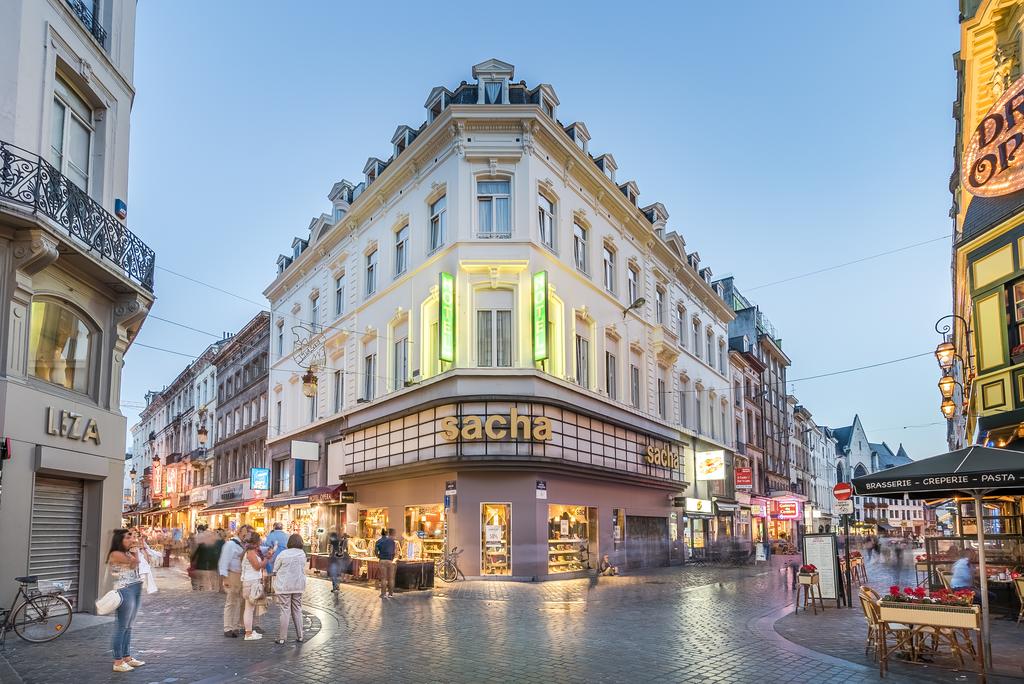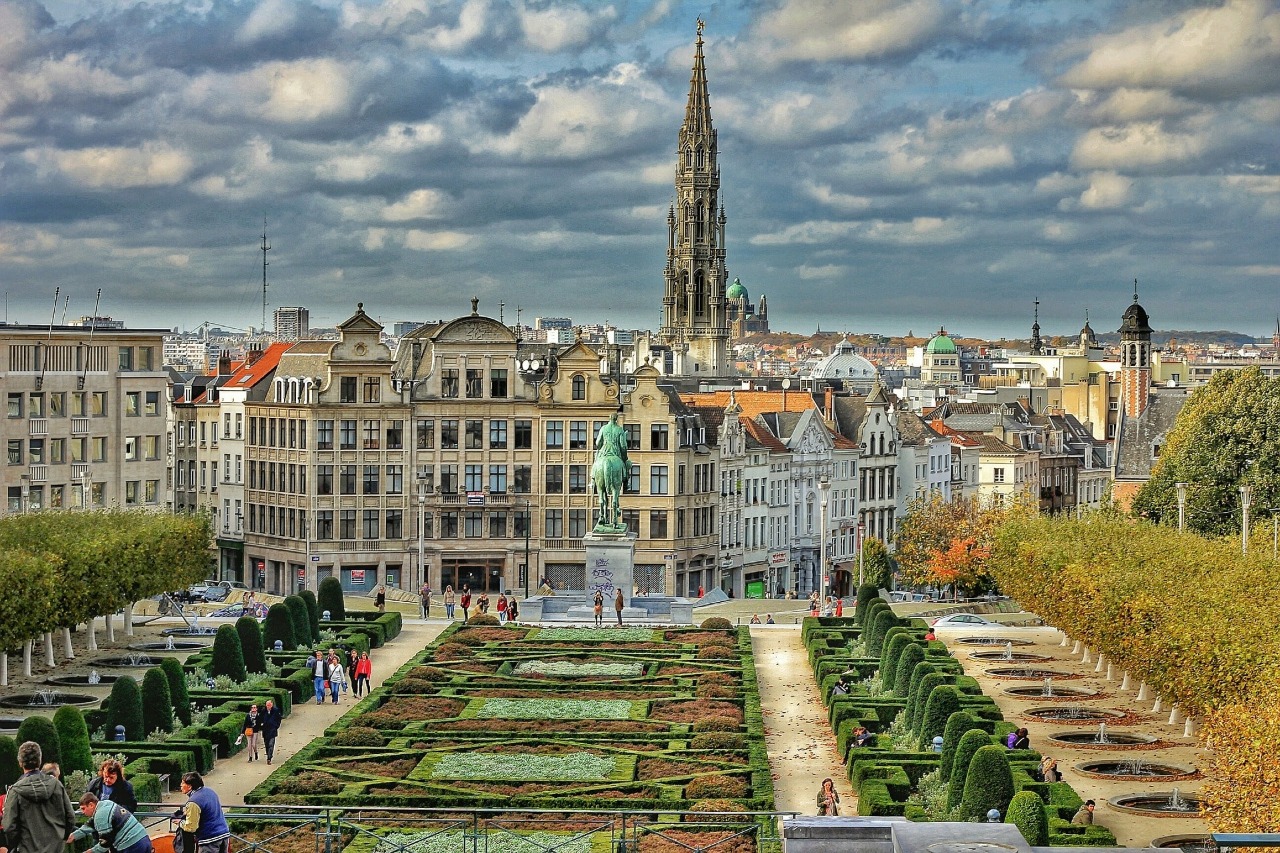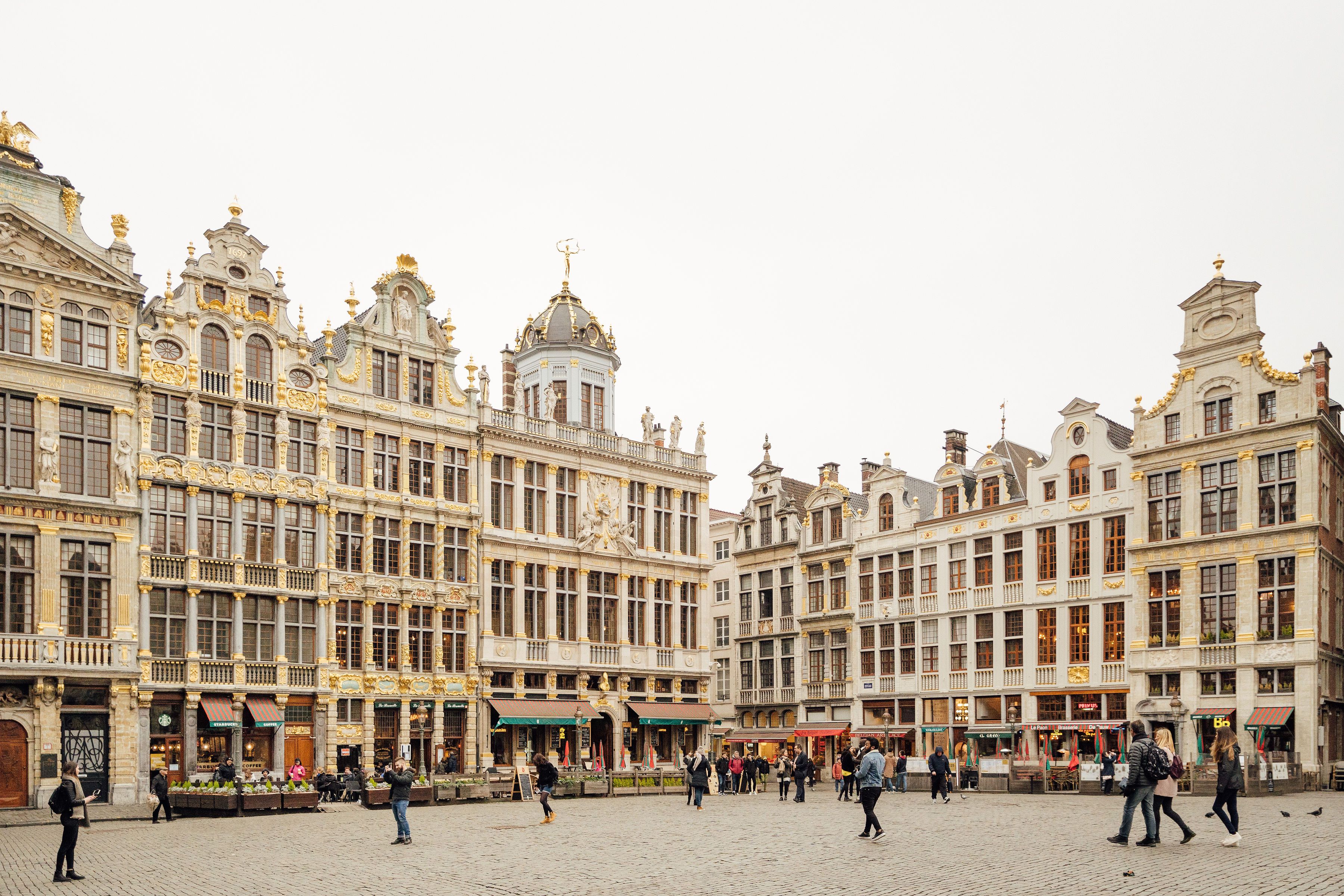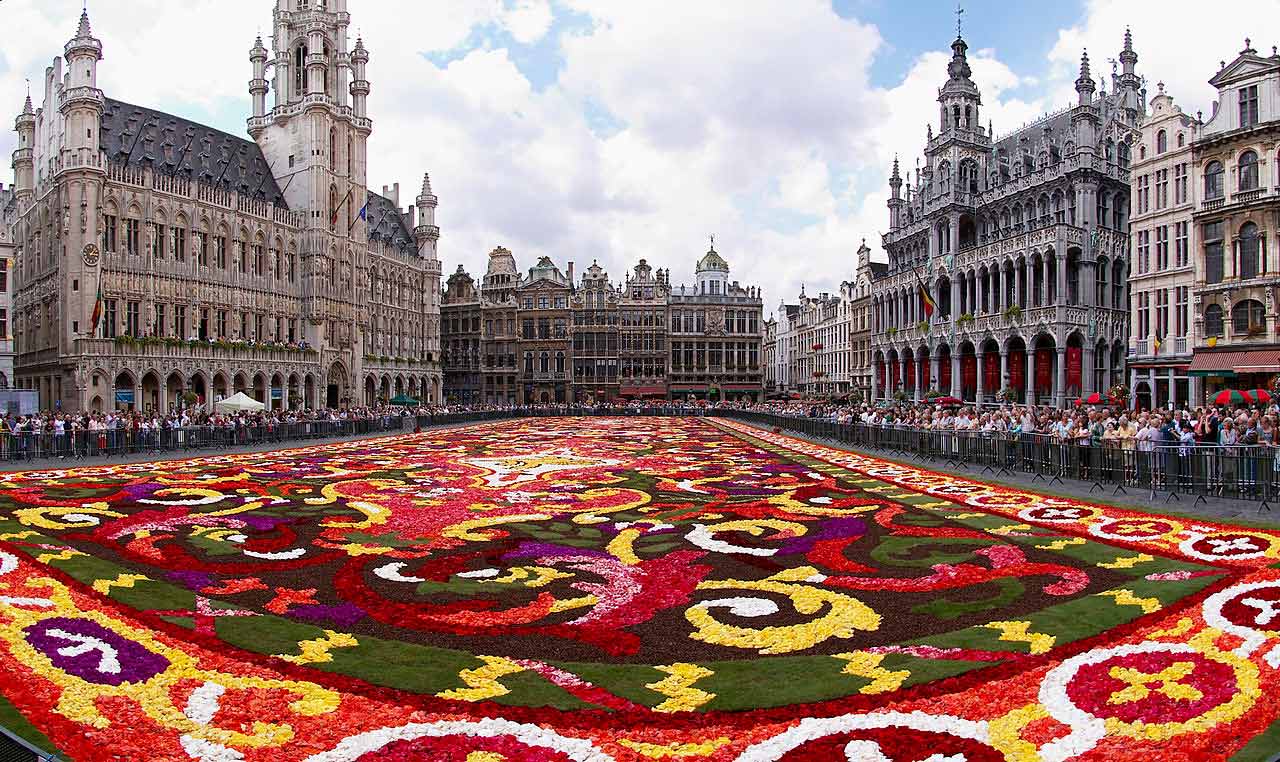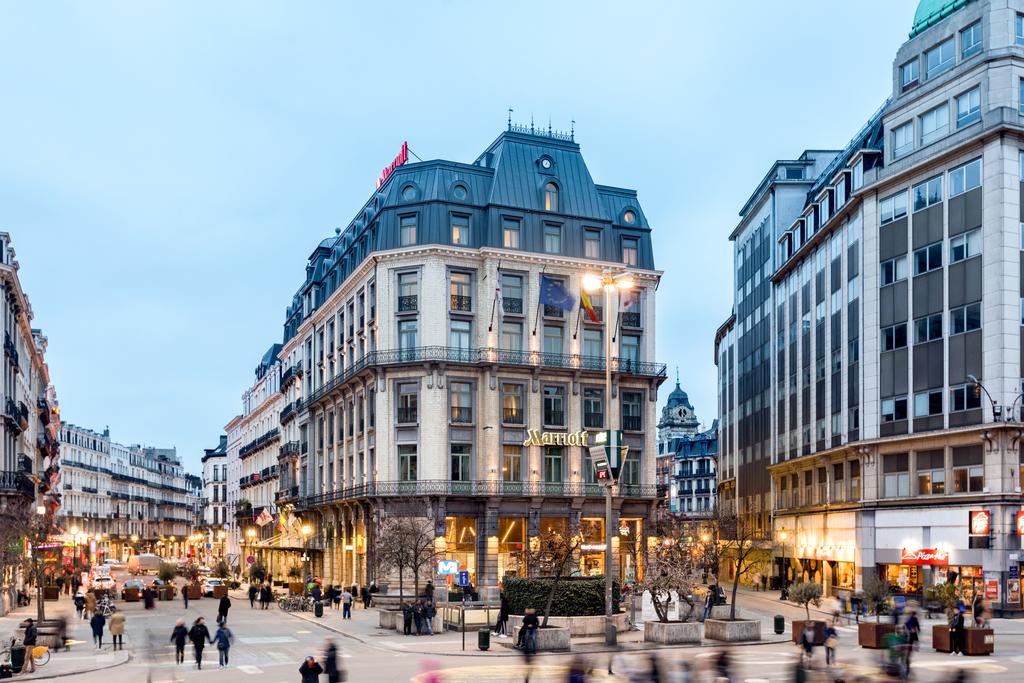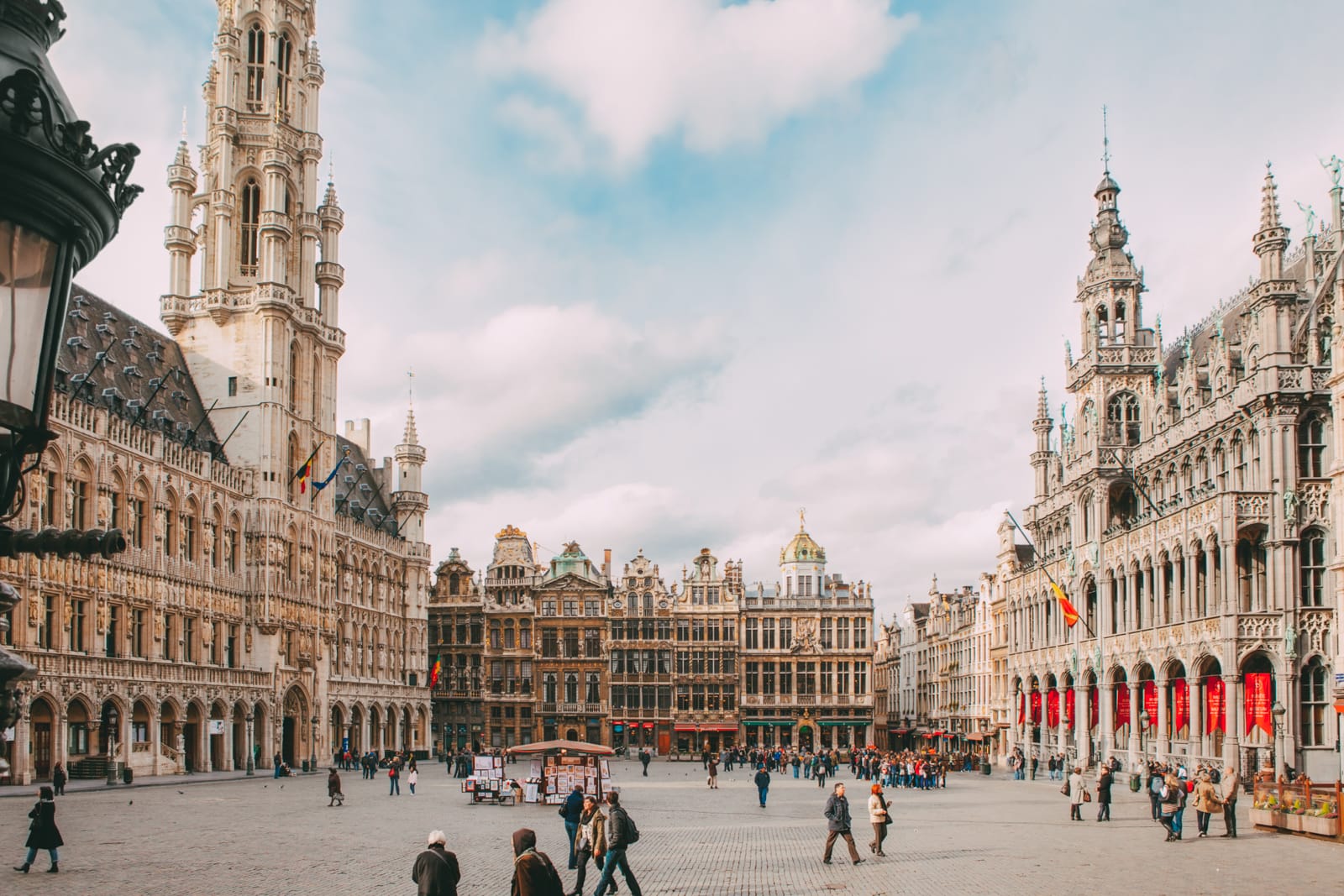Pictures of: Brussels
Location map
Airports
Hotels and other Accommodation
Golf Courses
What to visit
Consulates & Embassies
World Nomads
The Travel Insurance with the largest coverage

The Travel Insurance with the largest coverage

Brussels
Brussels officially the Region of Brussels or Region of Brussels-Capital, is the de facto capital of the European Union (EU) and the largest urban area in Belgium. It is made up of 19 communes, including the City of Brussels itself, which is the capital of Belgium, Flanders and the French Community of Belgium.
Brussels grew from a fortress in the tenth century, founded by a descendant of Charlemagne, to a metropolis of over one million inhabitants. The metropolitan area of the city has a population of over 1.8 million, making it the largest in Belgium.
Since the end of World War II (1939-1945), Brussels has been an important center of international politics. The presence of the main institutions of the European Union, as well as the headquarters of the North Atlantic Treaty Organization (NATO or NATO), has made the city a polyglot headquarters of many international organizations, politicians, diplomats and civil servants.
Although historically a region of Flemish dialect, Brussels became a city with increasing French language throughout the 19th and 20th centuries. Today most of the inhabitants are native speakers of French, although both languages have official status. Language tensions continue and the language laws of the municipalities around Brussels are a matter of much controversy in Belgium.
Brussels grew from a fortress in the tenth century, founded by a descendant of Charlemagne, to a metropolis of over one million inhabitants. The metropolitan area of the city has a population of over 1.8 million, making it the largest in Belgium.
Since the end of World War II (1939-1945), Brussels has been an important center of international politics. The presence of the main institutions of the European Union, as well as the headquarters of the North Atlantic Treaty Organization (NATO or NATO), has made the city a polyglot headquarters of many international organizations, politicians, diplomats and civil servants.
Although historically a region of Flemish dialect, Brussels became a city with increasing French language throughout the 19th and 20th centuries. Today most of the inhabitants are native speakers of French, although both languages have official status. Language tensions continue and the language laws of the municipalities around Brussels are a matter of much controversy in Belgium.
Tourism
Unpretentious Brussels, the capital of Belgium, Flanders and Europe, is rapidly gaining a reputation as one of Europe's top destinations for its small town charm, bars and restaurants, fabulous food, great nightlife, shopping fantastic, numerous museums and other attractions, including the diverse and interesting exhibitions and festivals organized annually.
St. Gery's clubs and bars are frequented all year round. There are numerous seafood restaurants in Ste. Catherine. Instead of getting stuck in traffic, walk through the narrow streets.
Brussels is also becoming known as the mecca of style, art and design. As it draws more and more international fashion names to its growing shopping districts, home-made Belgian designers are rapidly gaining global notoriety. The streets of Brussels feature art, architecture created from an unmistakable Belgian point of view that cannot be copied.
Architecture lovers should visit the Horta Museum, by the great Belgian architect Victor Horta.
This beautiful city is a center of Belgian fashion, art and culture.
The really huge medieval Grand Place, with many 17th century buildings and flower markets running every day. Reopened in 2006, the Atomium, the Brussels Eiffel Tower, offers exceptional views from inside and out.
Brussels has a lot more to offer than you might expect.
St. Gery's clubs and bars are frequented all year round. There are numerous seafood restaurants in Ste. Catherine. Instead of getting stuck in traffic, walk through the narrow streets.
Brussels is also becoming known as the mecca of style, art and design. As it draws more and more international fashion names to its growing shopping districts, home-made Belgian designers are rapidly gaining global notoriety. The streets of Brussels feature art, architecture created from an unmistakable Belgian point of view that cannot be copied.
Architecture lovers should visit the Horta Museum, by the great Belgian architect Victor Horta.
This beautiful city is a center of Belgian fashion, art and culture.
The really huge medieval Grand Place, with many 17th century buildings and flower markets running every day. Reopened in 2006, the Atomium, the Brussels Eiffel Tower, offers exceptional views from inside and out.
Brussels has a lot more to offer than you might expect.
Gastronomy
Brussels has tasty treasures that will please candy lovers and food connoisseurs. Possibly Belgian chocolate and the famous lambic gueuze beer is well known, but there are many more lesser known regional specialties that are well worth a try.
Chocolate and beer, as you all know, are typical Brussels icons. You can visit the Cocoa and Chocolate Museum near the Grand Place or make your own bonbons in one of the traditional chocolate kitchens. Maison des Maîtres-chocolatiers belges turn chocolate into pieces of art.
Beer enthusiasts are also well catered for in Brussels. In addition to the Belgian Brewery Museum in Grand-Place, why not visit the Cantillon Brewery with your family, where you can find out exactly how they prepared the lambic cheetah. This spontaneous fermentation is used for cheetah, Kriek and Faro.
Brussels obviously has a very large number of restaurants serving Belgian and Brussels specialties.
'Moules frites' (mussels and chips) and 'anguilles au vert' (eel with green herb sauce) are two internationally renowned Belgian dishes. Less well-known but no less delicious are 'boudin noir de Bruxelles' (Brussels black pudding), 'Américain frites' (coarse minced meat with eggs and spices) and 'stoemp' (mashed potato mixed with vegetables) with a good slice of bacon and 'saucisse de campagne' (sausage from the field).
Brussels sprouts are almost never on the menu. It's weird, but this is a reality. Belgian endives, on the other hand, sometimes also known as chicory, are used in many dishes, including salads, main courses, and au gratin.
If you just fancy something to go with a beer, tartine de plattekaas (a type of white cheese) or a slice of 'tete pressée' (pork pate) may suffice.
While touring Brussels, you will surely find stalls selling:
Caricoles (Snails cooked in a spicy soup)
Freshly Grilled Chestnuts (Fall and Winter Only)
Waffles (genuine brussels waffles)
Most people however have never heard of 'pain à la grecque'. Despite its name, it is a Brussels biscuit with no links to Greece. The word "Grecque" actually comes from the Flemish word "grecht", meaning "ditch", in reference to where the Augustinians originally made these cookies. The name 'pain à la grecque' was later translated back into Dutch as 'Grieks brood' (Greek bread). A Brussels specialty.
Chocolate and beer, as you all know, are typical Brussels icons. You can visit the Cocoa and Chocolate Museum near the Grand Place or make your own bonbons in one of the traditional chocolate kitchens. Maison des Maîtres-chocolatiers belges turn chocolate into pieces of art.
Beer enthusiasts are also well catered for in Brussels. In addition to the Belgian Brewery Museum in Grand-Place, why not visit the Cantillon Brewery with your family, where you can find out exactly how they prepared the lambic cheetah. This spontaneous fermentation is used for cheetah, Kriek and Faro.
Brussels obviously has a very large number of restaurants serving Belgian and Brussels specialties.
'Moules frites' (mussels and chips) and 'anguilles au vert' (eel with green herb sauce) are two internationally renowned Belgian dishes. Less well-known but no less delicious are 'boudin noir de Bruxelles' (Brussels black pudding), 'Américain frites' (coarse minced meat with eggs and spices) and 'stoemp' (mashed potato mixed with vegetables) with a good slice of bacon and 'saucisse de campagne' (sausage from the field).
Brussels sprouts are almost never on the menu. It's weird, but this is a reality. Belgian endives, on the other hand, sometimes also known as chicory, are used in many dishes, including salads, main courses, and au gratin.
If you just fancy something to go with a beer, tartine de plattekaas (a type of white cheese) or a slice of 'tete pressée' (pork pate) may suffice.
While touring Brussels, you will surely find stalls selling:
Caricoles (Snails cooked in a spicy soup)
Freshly Grilled Chestnuts (Fall and Winter Only)
Waffles (genuine brussels waffles)
Most people however have never heard of 'pain à la grecque'. Despite its name, it is a Brussels biscuit with no links to Greece. The word "Grecque" actually comes from the Flemish word "grecht", meaning "ditch", in reference to where the Augustinians originally made these cookies. The name 'pain à la grecque' was later translated back into Dutch as 'Grieks brood' (Greek bread). A Brussels specialty.
Weather
Restricted to the temperature in Brussels, it is almost the same as other nearby capitals. With very low temperatures in winter (3 ° C) and temperate in summer (17 ° C), snow may occur there, mainly because temperatures in January are below 0 ° C. The high in summer can reach 30 ° C, but rarely exceeds this or is the result of a hot air mass. In winter, temperatures can drop to -5 ° C, which happens almost every year, sometimes without the need for cold air.
Precipitation happens with the same intensity every month, there is no drought or flood period, unlike other European capitals. The average monthly rainfall is approximately 70 mm. The average annual rainfall is 840 mm. Because of this factor, it is an almost always humid city.
Precipitation happens with the same intensity every month, there is no drought or flood period, unlike other European capitals. The average monthly rainfall is approximately 70 mm. The average annual rainfall is 840 mm. Because of this factor, it is an almost always humid city.
Currency
Euro
Official language
Flemish, French, German
Required Documentation
No passport is required for Schengen signatory countries:
Germany, Austria, Belgium, Denmark, Spain, Finland, France, Iceland, Italy, Greece, Luxembourg, Norway, Netherlands, Portugal, Sweden, Switzerland, Liechtenstein, Estonia, Latvia, Lithuania, Malta, Hungary, Poland, Czech Republic, Slovakia and Slovenia.
All others must have a passport valid for more than 6 months from the first date of entry into the SCHENGEN Space and have a return ticket in their possession for a maximum of 90 days.
Germany, Austria, Belgium, Denmark, Spain, Finland, France, Iceland, Italy, Greece, Luxembourg, Norway, Netherlands, Portugal, Sweden, Switzerland, Liechtenstein, Estonia, Latvia, Lithuania, Malta, Hungary, Poland, Czech Republic, Slovakia and Slovenia.
All others must have a passport valid for more than 6 months from the first date of entry into the SCHENGEN Space and have a return ticket in their possession for a maximum of 90 days.
Health care
No particular preventive measures are required.
Other tourist destinations in:
Belgium
Belgium
Other world tourist destinations
Why to book with BOOK HOTEL ALGARVE
The best prices
Our partnerships with the world´s largest operators offer research on the best market prices.
More options
At Rotas Turisticos you can book the hotel, buy the air ticket, book the transfer from the airport to the hotel and vice versa, book the local excursions, rent the car, take travel insurance and consult the places to visit and where to go.
Holiday Tips & Destinations
Hundreds of holiday destinations with all the options that allow you to easily choose the destination that best suits your dream vacation.
BOOK HOTEL ALGARVE
Links

